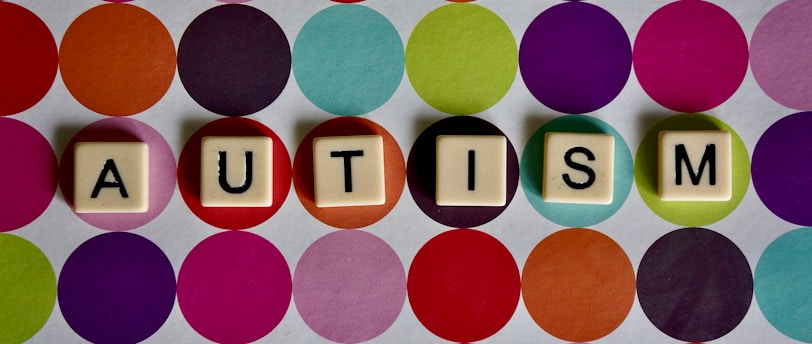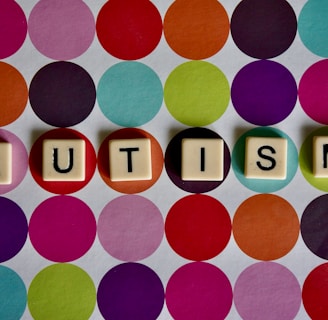Informações sobre saúde para você !
Understanding Autism: Symptoms, Diagnosis, Treatments, and How to Manage It
Descrição do post.
MENTAL HEALTH
1/28/20255 min read


Autism spectrum disorder (ASD) is a complex developmental condition that affects individuals in various ways. Whether it's recognizing the early symptoms of autism in children or exploring the diverse treatments for autism, there is a wide range of information that parents, caregivers, and professionals must understand. This article aims to provide you with comprehensive insights into autism—covering the signs, diagnosis, treatments, and tips for managing it at different stages of life.
What is Autism?
Autism is a neurodevelopmental disorder that affects how individuals perceive and interact with the world around them. It impacts social interaction, communication skills, and behavior. ASD is considered a spectrum because it manifests in varying degrees, ranging from mild symptoms to more severe cases.
The cause of autism is not fully understood, though genetics and environmental factors are believed to play roles. While there is no cure, early intervention, proper autism therapies, and a supportive environment can greatly improve the quality of life for individuals with autism.
Symptoms of Autism in Children: Early Indicators to Watch For
Recognizing the symptoms of autism in children at an early stage is crucial for providing the right support and treatment. While autism can be diagnosed in children as young as 18 months, the signs may appear earlier. Here are some common early signs to watch for:
Delayed speech and language skills
Limited eye contact or difficulty making social connections
Repetitive behaviors, such as hand-flapping or strict routines
Intense focus on specific topics or interests
Sensory sensitivities, such as an aversion to certain sounds or textures
It’s important to remember that every child with autism is different, and symptoms can vary widely. If you notice any of these signs, it’s essential to seek professional guidance for diagnosing autism.
How to Diagnose Autism: Steps and Process
The process of diagnosing autism involves several stages, often beginning with a developmental screening. This is usually done through observation and standardized assessments. A pediatrician or psychologist will assess a child's social behaviors, communication skills, and overall development.
For a definitive diagnosis, clinicians typically refer to the DSM-5 (Diagnostic and Statistical Manual of Mental Disorders, 5th edition), which outlines specific criteria for diagnosing ASD. Early and accurate diagnosis is critical because it allows for timely interventions that can significantly improve outcomes for individuals with autism.
Autism in Adults: What You Should Know
While autism is often diagnosed in childhood, many individuals are not diagnosed until adulthood. This is especially true for those with mild autism, where symptoms may be less obvious and overlooked during childhood. Autism in adults can manifest in different ways, including challenges with social interactions, maintaining employment, or living independently.
Understanding and recognizing autism in adults is crucial because treatment and support options can greatly improve their quality of life. Adults with autism may benefit from therapy, specialized support groups, and strategies for managing daily life and work environments.
Treatments for Autism: Effective Approaches to Managing Symptoms
There is no one-size-fits-all treatment for autism, as each individual’s needs are unique. However, several evidence-based autism therapies have proven to be effective in improving skills and managing behaviors. These treatments focus on enhancing communication, social interactions, and reducing problematic behaviors.
Applied Behavioral Analysis (ABA): A popular therapy that uses reinforcement strategies to encourage positive behaviors and discourage negative ones.
Speech and Language Therapy: Helps individuals improve their communication skills, whether verbal or non-verbal.
Occupational Therapy: Assists with fine motor skills and adapting to daily tasks.
Social Skills Training: Focuses on helping individuals understand social cues and engage in appropriate social interactions.
It’s important to work closely with healthcare professionals to create a treatment plan for autism tailored to the individual’s strengths and challenges.
Autism and Social Behavior: Understanding the Connection
One of the hallmark features of autism is the difficulty in understanding and engaging in social behavior. Individuals with autism often struggle with interpreting social cues, such as body language, tone of voice, and facial expressions. This can lead to challenges in forming relationships and participating in social situations.
However, with proper social skills training and support, many individuals with autism can improve their ability to engage with others. Therapies and interventions focused on social behavior are critical in helping those with autism build connections and navigate social interactions more effectively.
Autism and Diet: Special Considerations for Children with Autism
While there is no specific “autism diet,” many parents wonder whether certain foods can help manage symptoms. Some studies suggest that children with autism may benefit from specific dietary modifications. For instance, a gluten-free, casein-free (GFCF) diet is commonly explored by parents seeking ways to manage behavioral issues or improve digestive health in children with autism.
Additionally, proper nutrition is essential for all children, including those with autism. A balanced diet can help manage energy levels and mood, ensuring optimal brain function and overall well-being. Consulting with a pediatrician or dietitian familiar with autism and nutrition can help develop the best dietary plan.
Managing Autism in Daily Life: Coping Strategies for Parents and Caregivers
Managing autism on a day-to-day basis can be challenging, but with the right strategies, caregivers can create a supportive environment that encourages growth and learning. Here are some coping strategies for managing autism:
Establish routines: Individuals with autism often thrive in structured environments with predictable routines. This helps reduce anxiety and encourages positive behaviors.
Use visual supports: Picture schedules, charts, and visual reminders can help individuals with autism understand and follow daily tasks.
Promote independence: Encourage individuals with autism to take part in daily activities, from dressing themselves to helping with household chores. This builds confidence and self-esteem.
Autism Severity: Understanding Mild vs. Severe Autism
Autism is a spectrum disorder, meaning it manifests with varying levels of severity. Mild autism often presents with fewer challenges and might not be diagnosed until later in life, while severe autism can involve significant language delays, social difficulties, and a higher level of support.
The degree of severity often determines the kind of autism treatment needed. For those with mild autism, therapies may focus on enhancing social and communication skills, while those with more severe forms of autism might need intensive intervention to address more complex needs.
Frequently Asked Questions (FAQ)
Q: Can autism be cured?
A: Currently, there is no cure for autism, but early diagnosis and intervention can greatly improve an individual’s skills and quality of life.
Q: What are the early signs of autism in children?
A: Early signs include delayed speech, limited social interaction, repetitive behaviors, and unusual sensory sensitivities.
Q: How is autism diagnosed?
A: Autism is diagnosed through developmental screenings, observation, and assessments by healthcare professionals. Diagnosis is based on criteria outlined in the DSM-5.
Q: Is there a special diet for children with autism?
A: While there is no one-size-fits-all diet, some children with autism may benefit from dietary adjustments such as gluten-free or casein-free diets. Always consult with a healthcare provider for personalized advice.
Q: How can I help an adult with autism?
A: Adults with autism can benefit from social skills training, therapy, and structured support to help them navigate daily life, relationships, and work environments.
Autism is a lifelong condition, but with the right resources, individuals with ASD can lead fulfilling lives. By understanding the symptoms of autism, seeking early diagnosis, and implementing effective treatments, caregivers and professionals can provide the necessary support to help individuals thrive. Whether you're a parent, caregiver, or healthcare provider, staying informed and engaged is key to making a meaningful difference.
InfoHealth 4u
Artigos de saúde, produtos e dicas de saúde na palma da sua mão.
Contato
contact@infohealth4u.com
© 2024. All rights reserved.
